The inexplicable fear that surged through me at the very mention of Woolf's name has alleviated somewhat after my first foray into her works three years ago. Granted it has taken me three years to pick up another book by one of the foremost modernists, but, it was also a book I picked up while trying to return to the world of reading and literature. I expected to struggle, as I did with Mrs. Dalloway; I was prepared to lose myself in the long-windedness, the meanderings; I looked forward to being blown away and challenged, in equal measure. I was not disappointed.
That would be a glorious life, to addict oneself to perfection; to follow the curve of the sentence wherever it might lead, into deserts, under drifts of sand, regardless of lures, of seductions; to be poor always and unkempt; to be ridiculous in Piccadilly.
The Waves is a colloquy of sorts. The interspersed monologues of six characters, through different phases of their lives is essentially the crux of the book. However, none of the words are being said out aloud; instead, it is simply the thoughts fleeting through their minds, in present tense. It starts when the six characters are children - friends - and carries on through the various phases in their life: school; marriage; children; and finally, inevitably, old age.
Let us again pretend that life is a solid substance, shaped like a globe, which we turn about in our fingers. Let us pretend that we can make out a plain and logical story, so that when one matter is despatched—love for instance—we go on, in an orderly manner, to the next.
Yet, can you really call them characters when all that is revealed to you, as a reader, are the thoughts racing in their minds, and nothing more? And nothing less? Merely their voices, distinguishable by subtle inflexions and that's it?
The nine chapters that make up this book represent two things: the time of the day, and the stage of life the protagonists are in.
The first chapter, abundant with the voices of childhood and playfulness, is prefaced with a beautiful image of the sunrise, with the waves softly splashing. All six characters make an appearance in that first chapter, almost as though they are introducing themselves. The final chapter, carries a lot more weight, and is a lot more reflective; it is prefaced with a stunning image of the sun going down, with the waves crashing, and only has one of the characters - Bernard - reflecting and introspecting, in his old age, with the benefit of hindsight. The book does rise gradually to the crescendo that is the last chapter, for when you turn that last page, the feeling that overcomes you, as a reader, cannot be translated into words. That is the power of Woolf's writing.
Initially, it is difficult to get accustomed to the writing. The main challenge has nothing to do with the convoluted sentences that Woolf is famous for. In fact, due to the extremely lyrical writing, the temptation is almost to close your eyes, and let the words take over. The emotions evoked by the descriptive writing results in images dancing before your eyes, more overwhelming than expected. Significantly so.
The waves broke and spread their waters swiftly over the shore. One after another they massed themselves and fell; the spray tossed itself back with the energy of their fall. The waves were steeped deep-blue save for a pattern of diamond-pointed light on their backs which rippled as the backs of great horses ripple with muscles as they move. The waves fell; withdrew and fell again, like the thud of a great beast stamping.
Instead, the challenge arises from how each character is an extension of the other, such that it is almost impossible to distinguish the soliloquies of one character from the next. The shift in voice is subtle, and easy to miss, unless you take in each word - slowly, patiently.
'But when we sit together, close,' said Bernard, ‘we melt into each other with phrases. We are edged with mist. We make an unsubstantial territory.'
No, the writing does not mimic the way people speak, or the way people think. It is overtly poetic, excessively exaggerated and wonderfully evocative, but that's what ensures the connection between the reader and the character. Due to the stream-of-consciousness writing, one can be assured of the character's candour, and this in turn strengthens the bond.
There is, then, a world immune from change. But I am not composed enough, standing on tiptoe on the verge of fire, still scorched by the hot breath, afraid of the door opening and the leap of the tiger, to make even one sentence. What I say is perpetually contradicted. Each time the door opens I am interrupted. I am not yet twenty-one. I am to be broken. I am to be derided all my life. I am to be cast up and down among these men and women, with their twitching faces, with their lying tongues, like a cork on a rough sea. Like a ribbon of weed I am flung far every time the door opens. I am the foam that sweeps and fills the uttermost rims of the rocks with whiteness; I am also a girl, here in this room.
As a reader, who has undergone similar experiences, it is easy to empathise and sympathise with the characters, while simultaneously berating them or unconsciously nudging them to change their course.
This is Woolf at her most experimental, after the unfortunate demise of her brother at the age of twenty-six. The themes of absence, loss and death are prevalent in the book, with the existence of a seventh character: Percival. At no point do you hear Percival's voice, or the thoughts running in his head, yet he is a central character in the book, by virtue of the fact that he is constantly referred to by the other characters. Praise is flung at him, and the consensus amidst the six characters that you interact with through the book is that Percival is perfect, and cannot do any wrong. Initially, there are high hopes and aspirations for him, until he dies in his twenties (Percival has died (he died in Egypt; he died in Greece; all deaths are one death)). The other characters try to rationalise his death, to no avail.
And in me too the wave rises. It swells; it arches its back. I am aware once more of a new desire, something rising beneath me like the proud horse whose rider first spurs and then pulls him back. What enemy do we now perceive advancing against us, you whom I ride now, as we stand pawing this stretch of pavement? It is death. Death is the enemy. It is death against whom I ride with my spear couched and my hair flying back like a young man's, like Percival's, when he galloped in India. I strike spurs into my horse. Against you I will fling myself, unvanquished and unyielding, O Death!
I have not dwelled on the six characters whose voices make up this classic. That is almost immaterial, I feel, as I reflect on this book. They all have their place, and their importance, and the lack of even one of them would render this book slightly less impactful. The imagery, the cornucopia of metaphors, the insecurities and the accomplishments of the characters, and the lingering presence of a dear departed friend results in a book that necessitates a re-read. And another read. A single read is not enough to appreciate The Waves the Woolf has woven, at what has to be her best. It's a bold claim for someone who has simply read just one other book by her, but over the course of this year, I would like to change that. And hopefully, re-read this masterpiece someday soon.
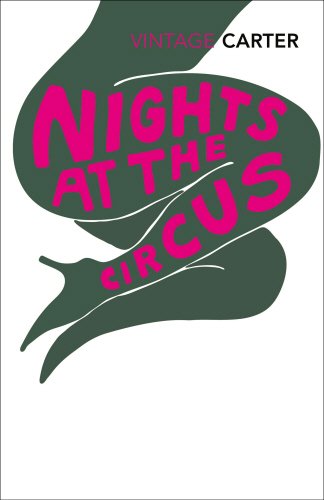 When you start a book by Angela Carter, there's only one thing that's certain: you have no idea what you're in for; nothing's too crazy, nothing's too bizarre. And of course, that's why you love Angela Carter. Okay, scratch that. That's why I love Angela Carter.
A story partly inspired by the myth of
When you start a book by Angela Carter, there's only one thing that's certain: you have no idea what you're in for; nothing's too crazy, nothing's too bizarre. And of course, that's why you love Angela Carter. Okay, scratch that. That's why I love Angela Carter.
A story partly inspired by the myth of 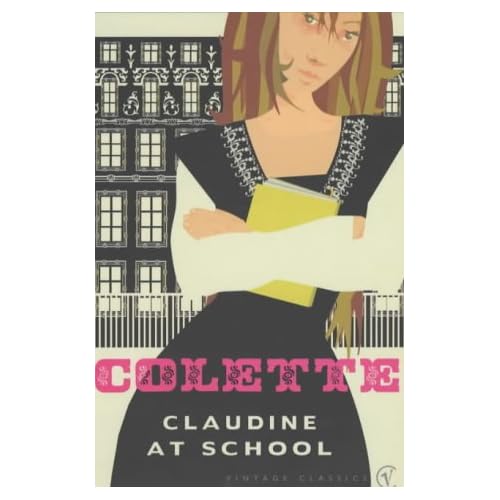 Written at the turn of the century (i.e. first published in 1900), this delightful and entertaining novel is an intimate diary of fifteen year old Claudine who attends school in Montigny in France. It's scandalous, it's humorous, and it's feel-good.
Largely autobiographical (and the first book of a four-part series), this book covers the last year of Claudine's (Colette's) school life, in an all-girls school. Claudine is precocious - flirtatious even - but charming; so full of life, but a bully; accustomed to getting her own way, but still being at odds with the dreaded Headmistress.
Written at the turn of the century (i.e. first published in 1900), this delightful and entertaining novel is an intimate diary of fifteen year old Claudine who attends school in Montigny in France. It's scandalous, it's humorous, and it's feel-good.
Largely autobiographical (and the first book of a four-part series), this book covers the last year of Claudine's (Colette's) school life, in an all-girls school. Claudine is precocious - flirtatious even - but charming; so full of life, but a bully; accustomed to getting her own way, but still being at odds with the dreaded Headmistress.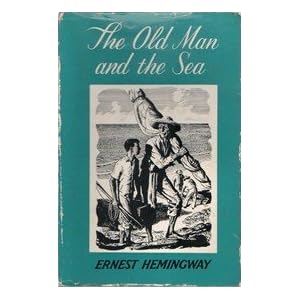 I have an absolutely ancient copy of this book lying around, and it's actually bizarre that I've not read the book yet - it's just 114 pages long! Published in 1974, the book cost just 30p at the time (US$0.45)! The book costs £7.99 now... let's keep that musing for another day!
The Old Man and the Sea is an extremely 'concise' book, for the lack of a better word. The plot is uncomplicated, with minimal dialogue. It's literally about an old man and the sea, as the old man (Santiago) tries to change his luck, after going eighty-four days without catching a fish.
I have an absolutely ancient copy of this book lying around, and it's actually bizarre that I've not read the book yet - it's just 114 pages long! Published in 1974, the book cost just 30p at the time (US$0.45)! The book costs £7.99 now... let's keep that musing for another day!
The Old Man and the Sea is an extremely 'concise' book, for the lack of a better word. The plot is uncomplicated, with minimal dialogue. It's literally about an old man and the sea, as the old man (Santiago) tries to change his luck, after going eighty-four days without catching a fish.
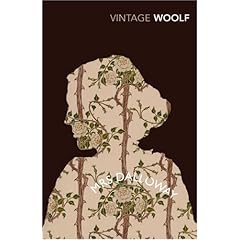 Claire {@
Claire {@  Dodie Smith's
Dodie Smith's  You know how it is - People recommend a book to you, you read the gist at the back, it looks interesting, you buy it, you live to regret it. That pretty much sums up Vonnegut’s Breakfast of Champions, for me. I read the first 50 pages, and attributed the dullness to the book kicking off slowly. Read the next fifty, and figured, it’s bound to get better. The next fifty was even more painstaking, and by the time I hit the 200th page, I figured this book was as pointless as it gets.
You know how it is - People recommend a book to you, you read the gist at the back, it looks interesting, you buy it, you live to regret it. That pretty much sums up Vonnegut’s Breakfast of Champions, for me. I read the first 50 pages, and attributed the dullness to the book kicking off slowly. Read the next fifty, and figured, it’s bound to get better. The next fifty was even more painstaking, and by the time I hit the 200th page, I figured this book was as pointless as it gets.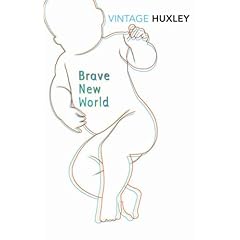 A book set in the future, but has a title inspired by Shakepeare’s The Tempest, Brave New World details a dystopian society. However, if you’re expecting to see shades of Orwell’s 1984, you’re in for a surprise. On the other hand, there are some small comparisons that can be made with Bradbury’s Fahrenheit 451, another dystopian world, where literature is banned. Of course, this is where the similarity ends.
A book set in the future, but has a title inspired by Shakepeare’s The Tempest, Brave New World details a dystopian society. However, if you’re expecting to see shades of Orwell’s 1984, you’re in for a surprise. On the other hand, there are some small comparisons that can be made with Bradbury’s Fahrenheit 451, another dystopian world, where literature is banned. Of course, this is where the similarity ends.